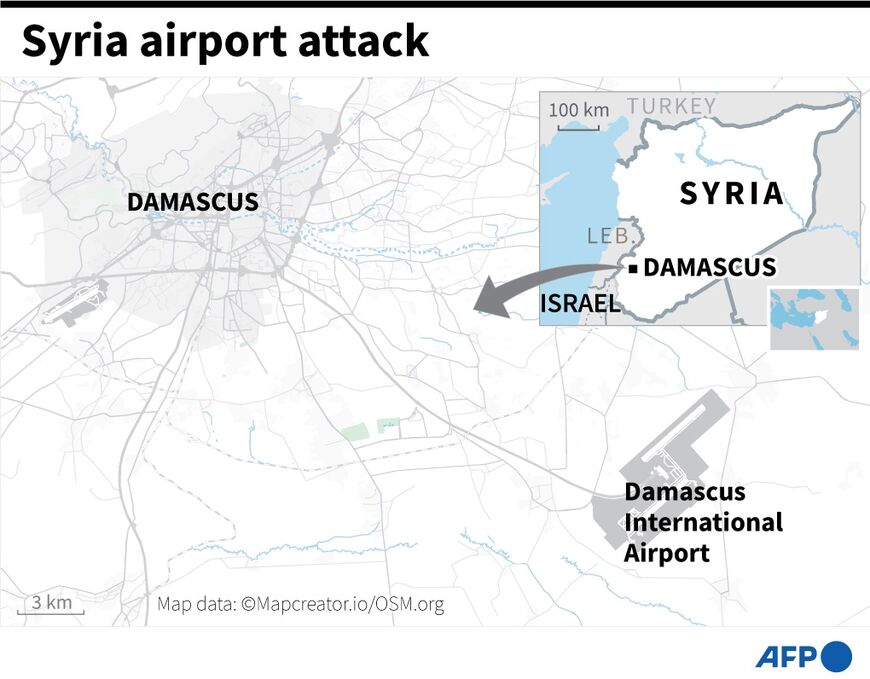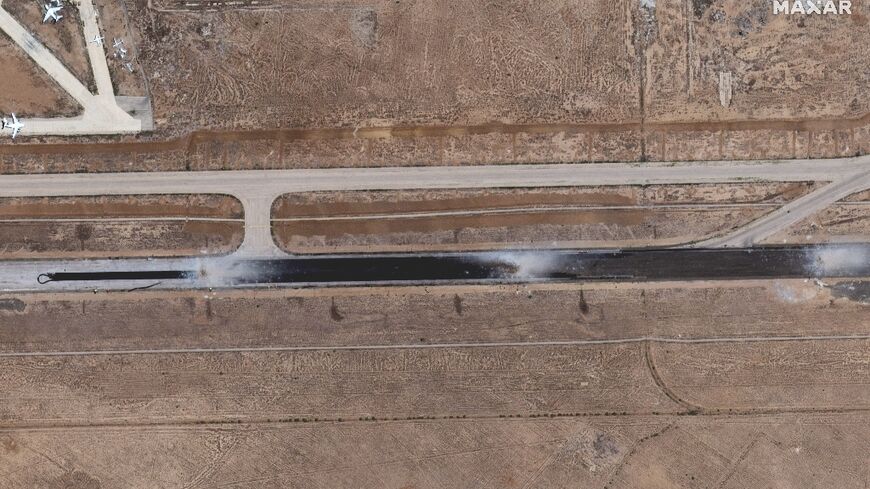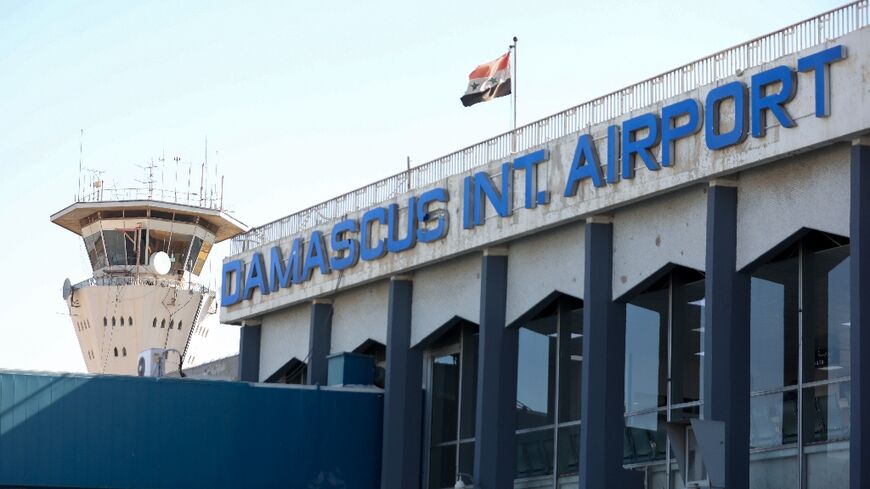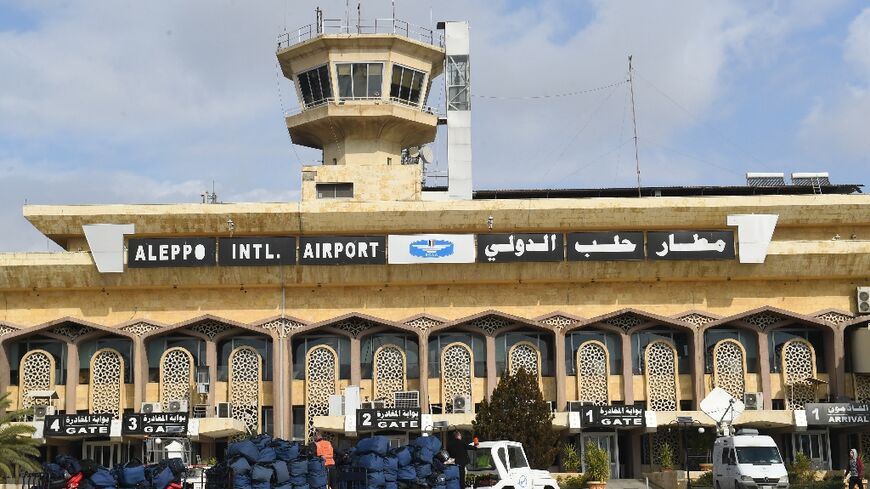Israeli strikes on Syrian capital's airport kill four: monitor
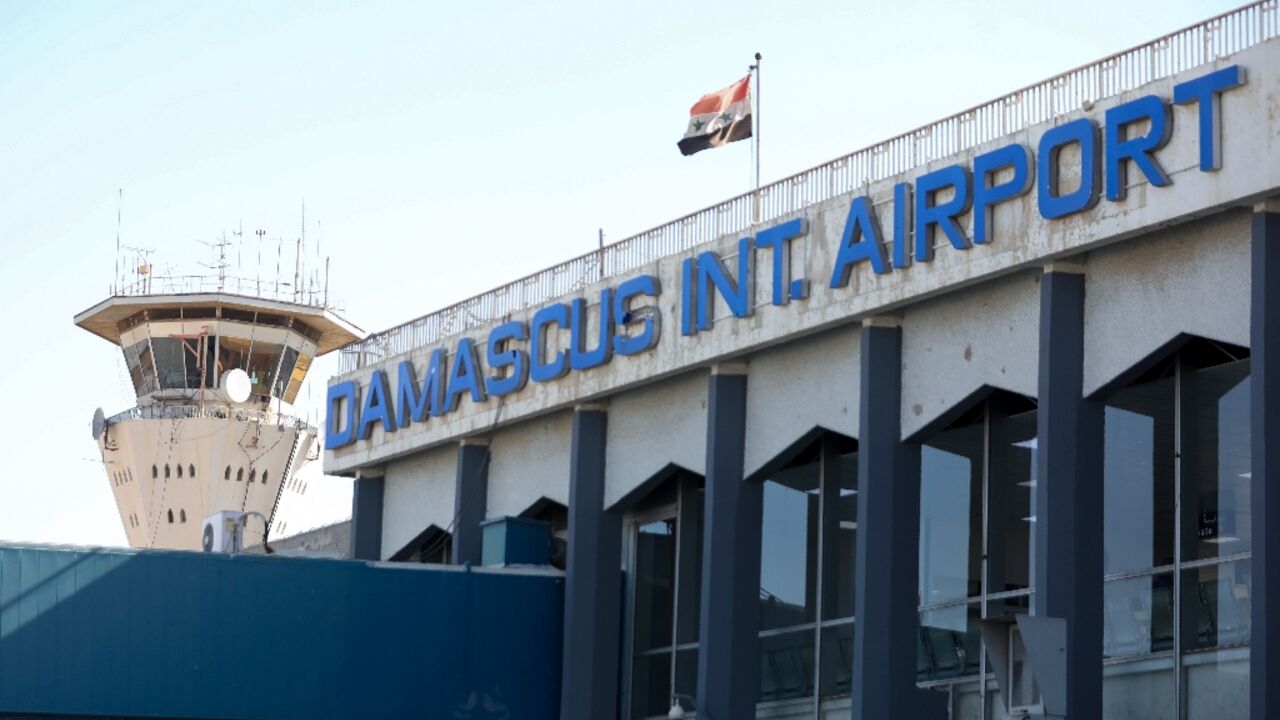
Israeli missile strikes on the Syrian capital's airport Monday killed four people including two soldiers and closed the runways for several hours, a rights monitor said.
This is the second time in less than seven months that Israel has hit Damascus International Airport -- where Iranian-backed armed groups and Lebanese Hezbollah fighters are present.
The attack around 2:00 am (2300 GMT) put the airport out of service until 9:00 am, Syria's state news agency SANA and officials said.
Israel carried out the strike with "barrages of missiles targeting Damascus International Airport and its surroundings", a military source told SANA, which reported that two Syrian soldiers were killed and two others wounded.
But the Britain-based monitoring group Syrian Observatory for Human Rights, which relies on a wide network of sources on the ground in Syria, said "four fighters including two Syrian soldiers were killed".
The missiles also hit "positions for Hezbollah and pro-Iranian groups inside the airport and its surroundings, including a weapons warehouse", said Rami Abdel Rahman, head of the Observatory.
The Syrian foreign ministry condemned the strike in a statement, calling on the UN to "take urgent measures to punish those responsible".
It described the strike as "nothing more than another episode of Israeli crimes", decrying the "targeting of Syria and its people".
Flights later resumed.
"Air traffic has returned" on one of the runways, "while the process of repairing the second runway continues," transport ministry official Suleiman Khalil told AFP.
- 'Persistent military action' -
Since civil war broke out in Syria in 2011, Israel has carried out hundreds of air strikes against its neighbour, targeting government troops as well as allied Iran-backed forces and fighters from Lebanon's Shiite militant group Hezbollah.
The Israeli army, which said Monday that "it does not comment on foreign reports", has repeatedly said it will not allow its arch foe Iran to gain a foothold in Syria.
Israel's hawkish veteran Benjamin Netanyahu was sworn in again on Thursday as head of what analysts call the most right-wing government in Israel's history.
A day earlier, the head of the Israel Defense Forces Operations Directorate, Major General Oded Basiuk, presented the military's "operational outlook" for 2023, where he said that the force "will not accept Hezbollah 2.0 in Syria", the army said on Twitter.
"Our course of action in Syria is an example of how continuous and persistent military action leads to shaping and influencing the entire region," Basiuk added.
The following day, Israel's military chief Aviv Kohavi gave a speech in which he noted "the armies Iran is trying to establish throughout the Middle East" as one of the facets of Tehran's threat to Israel.
"The most important thing to us is the entrenchment, not just through proxies, but through arms, infrastructure, the Iranians are trying to set up in the area near us, primarily in the Syria-Lebanon region", Kohavi said.
- More than a decade of war -
The airport is in a region southeast of Damascus where Iran-backed groups, including Hezbollah, regularly operate.
The last time the airport was out of service was in June 2022 -- also after an Israeli missile strike.
The runway, control tower, three hangars, warehouses and reception rooms were badly damaged in that attack -- forcing the airport to close for about two weeks and flights to be suspended.
Just as in Monday's attack, the Observatory said at the time that the strikes had targeted nearby warehouses used as weapons depots by Iran and Hezbollah.
The conflict in Syria started with the brutal repression of peaceful protests and escalated to pull in foreign powers and global jihadists.
About half a million people have been killed, and the conflict has forced around half of the country's pre-war population from their homes.
